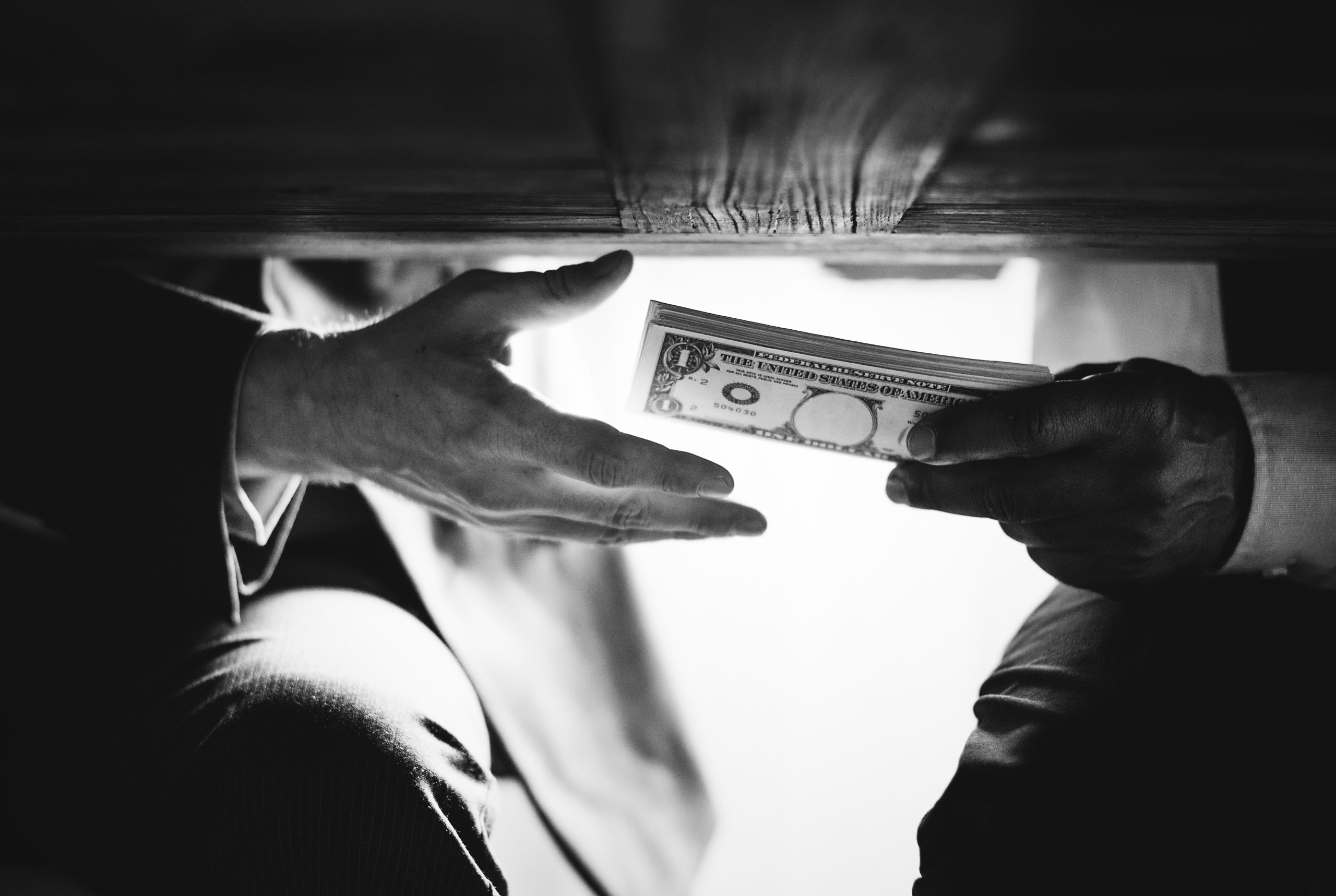Curious about the mysterious world of dark money in U.S. politics? Want to understand how undisclosed funds can shape elections? In this article, we’ll answer all your questions and shed light on the definition, impact, sources, and regulation of dark money. Join us as we dive into this opaque form of political funding, exploring its influence, Supreme Court rulings, concerns about democracy, and attempts to regulate it. Get ready to uncover the secrets of dark money in U.S. politics.
Definition and Types of Dark Money
Dark money refers to political money whose source is unknown. It is a form of political financing that lacks transparency and disclosure. Dark money is often channeled through nonprofit vehicles, such as politically active nonprofits formed under sections 501(c)(4) and 501(c)(6) of the tax code. These organizations are not required to disclose their donors, making it difficult to trace the origins of the funds. Additionally, limited liability companies (LLCs) formed in states like Delaware and Wyoming can also be used as organizational structures for dark money. These LLCs provide limited information, creating challenges in identifying the source of the funds.
Dark money is frequently used to fund political advertisements, both supporting and opposing candidates. It can take the form of issue-focused ads or messages targeting specific races. The influence of dark money in political campaigns can be significant, as it allows wealthy donors and corporations to exert their influence without transparency. The organizational structures and disclosure challenges associated with dark money contribute to the concerns about its impact on the democratic process. Efforts to regulate and enforce disclosure of dark money have faced resistance, highlighting the ongoing challenges in addressing this issue.
Amount and Impact of Dark Money
As we delve into the amount and impact of dark money in U.S. politics, it is important to understand the significant role it plays in shaping elections and influencing voters. Dark money organizations spent a record $1 billion on the 2020 presidential election, highlighting the substantial amount of undisclosed funding flowing into the political system. This lack of transparency has profound implications for democracy, as it allows billionaires and corporations to exert their influence without accountability. Dark money’s influence on voter behavior is notable, as it funds political ads that aim to sway public opinion. The anonymity of dark money donors makes it difficult for voters to assess the credibility and motives behind these messages. Furthermore, dark money plays a crucial role in campaign messaging, allowing candidates and interest groups to flood the airwaves with their preferred narratives. However, the lack of transparency surrounding dark money raises concerns about the fairness and integrity of the electoral process. It also has implications for the distribution of political power, as undisclosed funds can tip the scales in favor of well-funded candidates or causes. Overall, the impact of dark money on U.S. politics is far-reaching and demands greater transparency and regulation to safeguard the democratic process.
| Impact of Dark Money | Description |
|---|---|
| Effect on democracy | Dark money undermines the democratic process by allowing wealthy donors and corporations to buy elections without transparency. |
| Influence on voter behavior | Dark money funds political ads that aim to influence voter opinions, making it difficult for voters to assess the credibility and motives of the wealthy donors behind them. |
| Role in campaign messaging | Dark money plays a crucial role in funding campaign messaging, allowing candidates and interest groups to flood the airwaves with their preferred narratives. |
| Implications for transparency | The anonymity of dark money donors raises concerns about the fairness and integrity of the electoral process, as undisclosed funds can tip the scales in favor of well-funded candidates or causes. |
| Impact on political power distribution | Dark money has implications for the distribution of political power, as undisclosed funds can give certain candidates or causes an unfair advantage. |
Dark Money and Political Parties
You may be wondering how dark money impacts political parties in the United States. Dark money has a significant influence on political parties, and it is not limited to a specific party. Both Democrats and Republicans utilize dark money groups to fund their campaigns. Bipartisan dark money exists, with conservative dark money groups historically outspending liberal ones. However, dark money demographics are not limited to one side of the political spectrum.
One of the challenges with dark money is the lack of disclosure. Dark money groups are not required to disclose their donors, making it difficult to know who is funding political campaigns. This lack of transparency raises concerns about the integrity of the democratic process.
Dark money also has implications for campaign finance reform. The use of undisclosed funding undermines efforts to create a more transparent and accountable system. Many argue that dark money’s influence on political parties highlights the need for stronger regulations and enforcement to ensure that the public is aware of who is financing political campaigns. Dark money disclosure is an essential component of campaign finance reform to address the concerns surrounding its impact on political parties.
Dark Money and Supreme Court Rulings
The influence of dark money on political parties in the United States has been shaped by Supreme Court rulings on campaign finance and disclosure regulations. Two significant rulings, Citizens United v. Federal Election Commission and Wisconsin Right to Life v. FEC, have had a profound impact on the use of dark money in politics.
In the Citizens United case, the Supreme Court ruled that corporations, including certain nonprofits, could spend money on political advertisements explicitly supporting or opposing federal candidates. This decision overturned the Bipartisan Campaign Reform Act of 2002, which had previously banned such corporate spending in politics. As a result, politically active nonprofit groups now spend more money than ever to directly influence elections.
The Wisconsin Right to Life case further expanded the ability of corporations and certain nonprofits to spend money on issue-focused advertisements. This ruling allowed these entities to engage in political speech without facing the same disclosure regulations that apply to traditional campaign contributions.
These Supreme Court rulings have significantly changed the landscape of dark money in politics. Critics argue that the lack of transparency and disclosure requirements associated with dark money undermines the integrity of the democratic process, while proponents argue that it protects free speech rights. Regardless of one’s perspective, it is clear that the Supreme Court’s decisions have shaped the use of dark money and raised concerns about the potential for undue political influence.
Concerns and Regulation of Dark Money
Regulation and enforcement of dark money are limited and often ineffective due to various challenges in identifying the source of these undisclosed funds. The following factors contribute to the concerns and challenges in regulating dark money:
- Disclosure requirements: Dark money organizations, such as politically active nonprofits and limited liability companies, are not required to disclose their donors, making it difficult to track the flow of money and identify the individuals or entities behind it.
- Enforcement challenges: The Federal Election Commission (FEC), the primary regulator of money in politics, faces ideological disagreements among its members regarding the extent of the dark money problem. This internal discord hampers effective enforcement and regulation of dark money.
- Campaign finance reform: The issue of dark money has prompted calls for campaign finance reform to address the influence of undisclosed funds on elections. However, efforts to require disclosure of individual donations to dark money groups have faced resistance.
- Influence on elections: Dark money can have a significant impact on elections by funding political advertisements and influencing voters. The lack of transparency raises concerns about the credibility and motives of the wealthy donors behind the dark money.
- Transparency concerns: Dark money undermines transparency in the democratic process, as voters are unable to fully assess the interests and agendas driving the political messaging funded by undisclosed sources.
These concerns and challenges highlight the need for effective regulation and enforcement measures to ensure transparency and accountability in campaign financing.
Definition and Impact of Dark Money
As we delve into the definition and impact of dark money in U.S. politics, it is important to understand its significance and how it shapes the electoral landscape. Dark money refers to money spent to influence an election from an undisclosed source. It is often used for political ads that aim to sway voters. The anonymity of dark money makes it difficult for voters to assess the credibility and motives of the wealthy donors behind it. This lack of transparency allows billionaires and corporations to buy elections without public scrutiny. Dark money undermines the democratic process by allowing powerful interests to exert undue influence over campaigns and policy decisions.
The amount of dark money in politics has been on the rise. In the 2020 presidential election, dark money organizations spent a record $1 billion. While contributions to candidates must be disclosed, dark money allows wealthy funders to spend millions without transparency. Both Democrats and Republicans receive undisclosed funding, though historically Republicans have received more dark money. Efforts to regulate dark money and increase transparency have been met with resistance. Prospective regulations aim to address the issue of dark money transparency and donor influence in campaign funding. Legal loopholes currently exist that allow for the flow of undisclosed funds into politics, making it difficult to trace the true origin and influence of dark money.
Amount and Distribution of Dark Money
During the 2020 presidential election, dark money organizations spent a staggering $1 billion on political campaigns. This significant amount of undisclosed funding has a considerable influence on elections and raises transparency issues that impact democracy. To paint a clearer picture, here are a few key facts:
- Both Democrats and Republicans received undisclosed funding, although historically Republicans have received more dark money.
- Joe Biden’s campaign attracted $174 million in dark money, while Donald Trump’s campaign received $25.2 million.
- Dark money is not limited to federal contests; it has also increased in state, local, and judicial elections.
- Contributions to candidates must be disclosed, but dark money allows wealthy funders to spend millions without transparency.
These numbers highlight the immense campaign financing power of dark money organizations and the potential implications for democracy. The undisclosed nature of these funds makes it challenging for voters to assess the credibility and motives of the wealthy donors behind them. Dark money enables billionaires and corporations to exert significant influence over elections without being held accountable. This undermines the democratic process by allowing the wealthy few to shape the outcomes of political campaigns.
Sources and Channels of Dark Money
To understand the sources and channels of dark money, it is important to recognize that politically active nonprofits and limited liability companies are common vehicles used to funnel undisclosed funds into U.S. politics. Politically active nonprofits, such as those formed under sections 501(c)(4) and 501(c)(6) of the tax code, play a significant role in channeling dark money. These organizations are not required to disclose their donors as long as their explicitly political activities are limited. Some nonprofits exist solely to collect and funnel dark money to specific election campaigns.
In addition to politically active nonprofits, dark money often flows through super PACs. Super PACs can accept and spend unlimited amounts of money, including dark money. However, they only need to disclose the name of the dark money nonprofit, making it difficult to trace the original source of the funds.
Regulatory loopholes contribute to the anonymity of dark money sources. Limited liability companies (LLCs) formed in states like Delaware and Wyoming are often used to channel dark money. These LLCs function as black boxes with limited information available, making it challenging to uncover the true source of the funds.
Disclosure and transparency requirements are essential for addressing the issue of dark money in politics. Requiring dark money donors and organizations to disclose their contributions and expenditures would enhance transparency and allow voters to make informed decisions. Closing regulatory loopholes and implementing stricter regulations can help prevent the flow of undisclosed funds into U.S. politics, reducing the influence of dark money on political decision-making processes.
Top Spenders of Dark Money
The top spenders of dark money in U.S. politics can significantly influence election outcomes. Here are some of the top spenders and their funding sources:
- The National Association of Realtors: This organization spent over $20 million in dark money during the 2020 federal election. They supported both Democrats and Republicans, making it difficult to determine their political influence.
- Defending Democracy Together: A liberal organization, Defending Democracy Together, spent just under $16 million, primarily opposing Trump. Their funding sources remain undisclosed, raising transparency issues.
- The North Star PAC: Another liberal super PAC, the North Star PAC, contributed about $7 million to oppose a Republican U.S. senator. The original source of their funding is unknown.
- The Duty and Country PAC: This liberal super PAC spent over $6 million against Republican candidates in the Kansas senate race. The funding sources behind their dark money remain undisclosed.
- The Big Tent Project Fund: A Democratic primary spender, the Big Tent Project Fund, spent nearly $5 million. The origin of their dark money funding is not disclosed.
These top spenders of dark money demonstrate the extent of political influence that can be wielded through undisclosed funding sources. The lack of transparency raises concerns about the integrity of the electoral process and highlights the need for campaign finance reform to address these transparency issues.
Reasons for the Increase in Dark Money
The increase in dark money can be attributed to the expansion of political influence for wealthy donors and corporations following the Supreme Court case FEC vs. Citizens United. This landmark decision allowed corporations, including certain nonprofits, to spend unlimited money on elections. It paved the way for the creation of Super PACs, which have become major players in political campaigns. Super PACs can accept and spend unlimited amounts of money, often funded by wealthy donors and corporations.
The influence of wealthy donors has grown significantly as they can now contribute large sums of money without disclosing their identities. This lack of transparency raises concerns about the impact on democracy. Dark money allows billionaires and corporations to exert their influence over the electoral system without accountability. It undermines the democratic process by enabling the buying of elections without transparency.
The role of Super PACs in the increase of dark money cannot be ignored. These organizations serve as conduits for undisclosed funds, making it difficult to trace the original source of the money. This lack of transparency creates transparency issues and makes it challenging for voters to assess the credibility and motives of the wealthy donors behind the dark money.
The consequences for the electoral system are significant. The influx of dark money distorts the political landscape, giving disproportionate power to wealthy individuals and corporations. It creates an imbalance in the political playing field, where those with vast financial resources can influence the outcome of elections. This undermines the principle of equal representation and can lead to a loss of faith in the electoral system.




